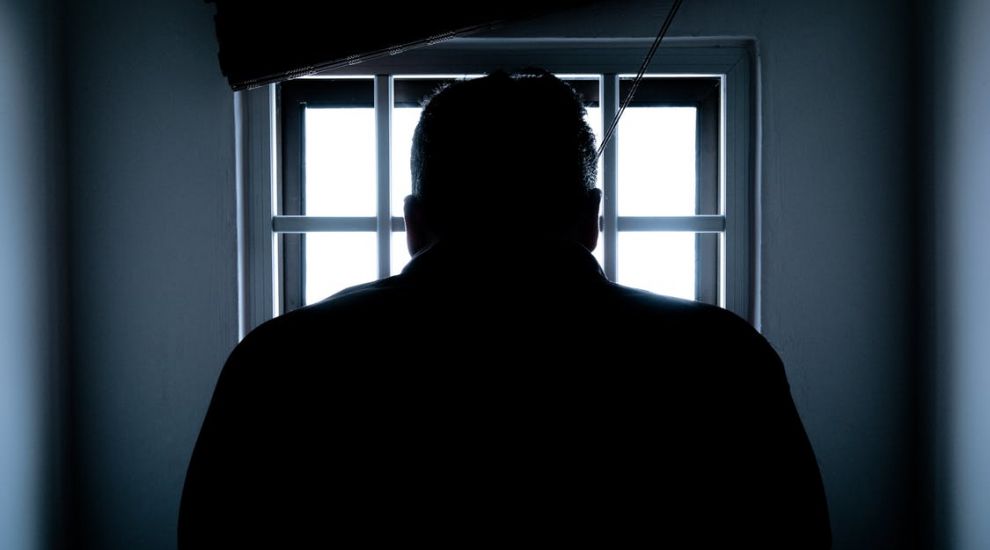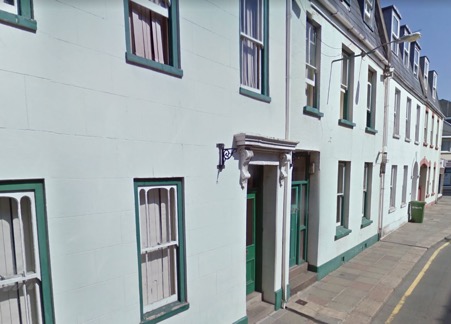

A “high-risk” sex offender was allowed to live in a tent in Jersey after leaving prison last year because suitable accommodation couldn’t be found for him elsewhere, it has emerged.
The convict, who remains anonymous, had recently committed sexual offences and was labelled “at risk” himself, but did not qualify to be formally supervised at the end of his sentence.
With no accommodation identified for him prior to his release, the man was offered a place with the Shelter Trust, but declined. He was subsequently released to live in a tent.
The revelation came in a report into La Moye Prison by HM Chief Inspector of Prisons, Peter Clarke, following a review conducted in September last year. Overall he described it as a "good report on a good prison" with La Moye being particularly praised in the areas of safety and respect.
The report did also comment on the lack of suitable accommodation for prisoners upon release as a threat to public safety.

Pictured: The sex offender, who was deemed "high-risk", refused to stay at the Shelter Trust.
The report identified that there was “limited accommodation” available on the island for prisoners if they were unable to return to live with family or friends due to rocketing rents, high demand on shelters and being unable to apply for social housing in advance of their release.
But “high-risk” prisoners were the main concern. Mr Clarke is now calling for the prison service to provide “suitable accommodation” for such prison leavers to address public protection concerns.
His report also criticised the poor conditions of the men’s ‘Segregation Unit’ – a secure space away from other inmates where they may be forced to stay for several days.
Housed in a basement area, the space was described as “gloomy” and “stark” with no furniture and inadequate toilet facilities – the only fittings were a plastic toilet and basin and a plinth for a bed. One cell used in the six months prior to the inspection did not feature a basin. Inspectors also noted that accommodation of a better quality was available, but was not used.
Inmates being held in the unit were allowed one hour of outdoor exercise per day in a “small bare yard surrounded by concrete walls” and they did not receive regular visits by the duty governor or chaplain. The longest stay recorded at the time was two weeks. “Such prolonged periods locked up with no human contact were tantamount to solitary confinement,” the report noted.
Pictured: HM Prison La Moye's 'Segregation Unit' was compared to solitary confinement.
Conditions in the women’s segregation unit were said to be of better quality, but there were concerns that they could be observed by male staff on camera carrying out intimate acts such as using the toilet or getting changed. This was branded an “unacceptable intrustion on women’s privacy.”
The concerns about the unit came despite calls five years ago following the last independent inspection to refurbish or decommission the space entirely, but this recommendation was never followed. It was noted in the report, however, that the unit had been used less frequently - 13 times in the six months prior to the report, compared with 53 during the last inspection.
Of the 2013 report’s 65 recommendations, less than half had been achieved. One fifth were ‘partially achieved’, 28 were not achieved and one was deemed no longer relevant.
Credit was given, however, to HM La Moye staff for helping create a safe and respectful atmosphere. They were praised for being "professional, positive and engaging" and offering good one-to-one support, especially to the few female inmates. Improvements were also noted in the support of those who self-harmed.
Cleanliness standards were found to be high, with prisoners generally able to wear their own clothes and make use of the "well-organised laundry facilities", also of a good standard. But concern was raised over the fact that some newcomers were left wearing the same underwear for as many as three days while their own clothes were scanned for contraband - in the interim, they were made to wear 'prisoner clothing'.
Pictured: An aerial view of HM Prison La Moye. (Google Maps)
It was therefore recommended that inmates required to wear prison clothing are provided with a regular change of clothes.
The variety of food options were also noted as a positive. "A well balanced menu was offered on a five-week cycle which reflected religious and lifestyle diets. Meal times were appropriate and a breakfast of cereal and toast was served each morning," the report said.
Summing up his findings, Mr Clarke said: “This is a good report on a good prison. Progress has been made in the two critical areas (safety and respect) which provide the foundations of rehabilitation. We are confident that, under the direction of the governor, the competent and committed learning and skills team will take on board our criticisms of the current provision and use their experience and knowledge to drive the improvements needed.”
Another of those criticisms related to the level of 'purposeful activity' provided to prisoners - some activities were reported to not be offered at a high enough level, meaning that they did little for the prisoners' employability upon release.
Bill Millar, Prison Governor, said that he believed La Moye's record as "extremely good", stating: "the final rating in this area seems unjustified."

Pictured: Bill Millar, Prison Governor.
Nonetheless, he welcomed the report's positive findings, commenting: “The consistency in leadership from the Minister to the Governor was praised as well as the professionalism of the officers. The prisoners’ responses in the surveys were also extremely positive, expressing their appreciation for the treatment and support they receive from officers.”
The Minister for Home Affairs, Deputy Kristina Moore, who works closely with the prison service, added: “I wish to congratulate the Prison Governor and his staff for achieving the standards they have now reached. La Moye Prison has been given the highest ratings in the areas of safety and respect, with very low levels of violence and prisoners reporting that they feel safe.
“We have heard reports from the UK recently about some of the appalling conditions in one prison, and that 40 per cent of jails are described as ‘unsafe’, so this report of our prison at La Moye should be seen as a positive one. There are areas that need further work and we will now consider the Chief Inspector’s recommendations very carefully but Jersey has a good prison service that the Island can be proud of.”
Comments
Comments on this story express the views of the commentator only, not Bailiwick Publishing. We are unable to guarantee the accuracy of any of those comments.